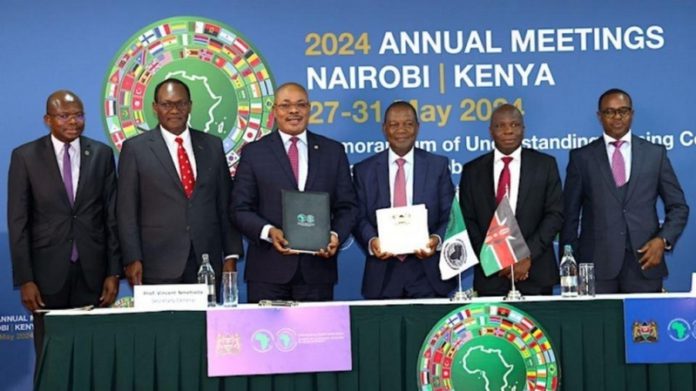The African Development Bank Group is making a strong case for the rechanneling of Special Drawing Rights (SDRs) to development banks especially those in emerging markets.
The Multilateral body argues that given the peculiar economic meltdown faced by most developing countries across Africa, an “innovative” solution will be required to unlock more development financing for the continent.
Although SDRs Serve as a supplementary international reserve asset for countries all over the world, Only 20 organisations have been designated as ‘prescribed holders’ of the SDRs, excluding other multilateral, private organizations and individuals to draw directly on these funds.
However, the African Development Bank says it is time for reform. Vincent O. Nmehielle, Secretary-General of the African Development Bank in his remarks to reporters at the commencement of the 2024 Annual Meetings in Nairobi Kenya, noted that Africa needs transformation in terms of socioeconomic development, a situation which he believes requires much more work to be done in achieving this set objective.
The Secretary-General pointed out that the international financial architecture, which was designed “mainly to resuscitate Europe after the Second World War” ought to be reviewed as he alludes to the desire of AfDB to champion the agenda of “Africa’s Transformation, the African Development Bank Group, and the Reform of the Global Financial Architecture” which forms the theme for this year’s annual meeting taking place in Nairobi, Kenya.
According to Vincent Nmehielle, “the bank (AfDB) is asking for the rechanneling of SDRs to development banks to enable more finance to be made available to developing countries. That is one aspect of the reform which the IMF we hope is favorably considering…It is a global issue where all multilateral development banks will have to come together with all policymakers to be able to (decide) what reform will be necessary”.
Being the statutory meeting of the African Development Bank, stakeholders are also expected to examine the performance of the Bank in the previous year as it positions itself for a new outlook while making relevant decisions backed by resolutions.
“Definitely, there will be outcomes and decisions made by the governors on what direction the Bank will take, possibly in the area of Africa’s transformation and what role the Bank will play or could play in the reform of the international financial architecture, particularly some of the innovative ways that the Bank can affect that system,” the AfDB Secretary-General noted.
ALSO READ:

